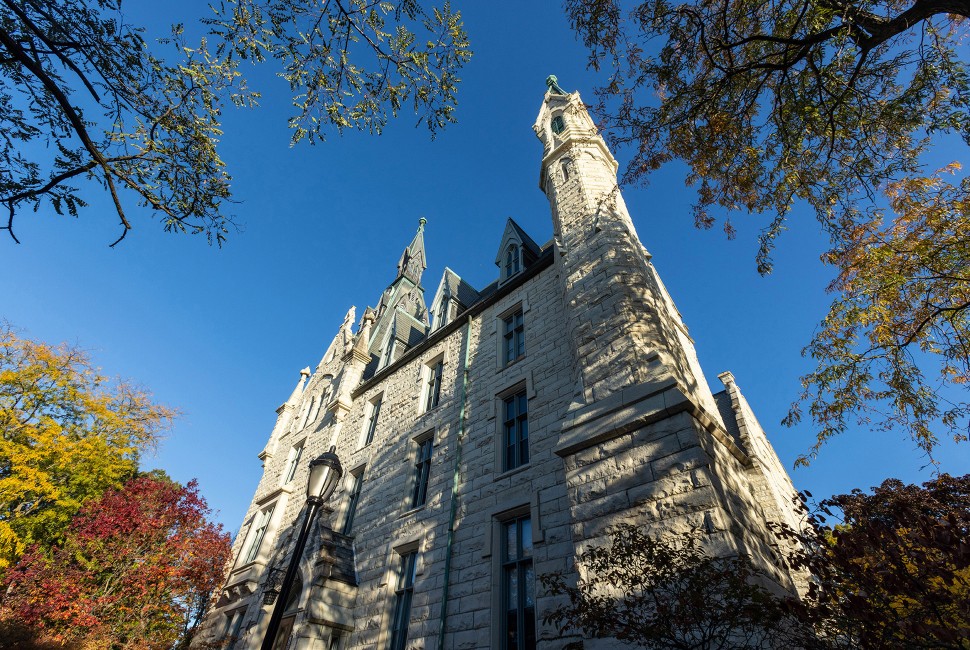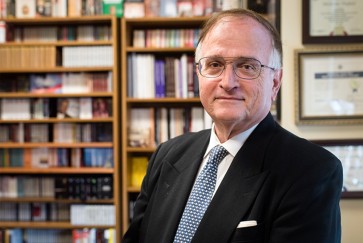Eight members of the Northwestern University faculty have been elected members of the American Academy of Arts and Sciences, one of the nation’s oldest and most prestigious honorary societies.
Guillermo Ameer, Jian Cao, Mercouri Kanatzidis, Shana Kelley, Aldon Morris, Susan Quaggin, Ali Shilatifard and Krista Thompson are among the nearly 270 members elected in 2023 drawn from academia, the arts, industry, policy, research and science.
When announcing this year’s new members, Academy President David W. Oxtoby said, “With the election of these members, the academy is honoring excellence, innovation and leadership and recognizing a broad array of stellar accomplishments. We hope every new member celebrates this achievement and joins our work advancing the common good.”
The academy was founded in 1780 by John Adams, James Bowdoin and others who believed the new republic should honor exceptionally accomplished individuals and engage them in advancing the public good.
The academy’s dual mission remains essentially the same 240 years later with honorees from increasingly diverse fields and with the work now focused on the arts and humanities, democracy and justice, education, global affairs and science.
Northwestern’s newest members are:
Guillermo A. Ameer
Guillermo A. Ameer is the Daniel Hale Williams Professor of Biomedical Engineering in the McCormick School of Engineering, professor of surgery at the Feinberg School of Medicine and director of the Center for Advanced Regenerative Engineering.

Ameer is a leader in regenerative engineering, biomaterials, additive manufacturing for biomedical devices and controlled drug delivery. His laboratory has pioneered the development of tissue regeneration applications of citrate-based biomaterials, the core technology behind innovative bioresorbable orthopedic tissue fixation devices recently cleared by the Food and Drug Administration and currently used in musculoskeletal surgeries.
Ameer was named the 2022 Bioactive Materials Lifetime Achievement Award winner by the Bioactive Materials academic journal. Other awards, among many, include the 2022 Technology Innovation, Development, and Commercialization awards given by the Society for Biomaterials and the Tissue Engineering and Regenerative Medicine International Society — North America.
Jian Cao
Jian Cao is the Cardiss Collins Professor of Mechanical Engineering at McCormick. She is also the director of the Northwestern Initiative for Manufacturing Science and Innovation and a professor by courtesy of civil and environmental engineering and of materials science and engineering.

Her major research interests include innovative manufacturing processes and systems, particularly in the areas of deformation-based processes and laser processes.
Her work has made fundamental contributions to the characterization of the effects of material structure on forming behavior of metals and woven composites. Current research from her lab has direct impacts on energy-efficient manufacturing and additive engineering.
Mercouri Kanatzidis
Mercouri Kanatzidis is the Charles E. and Emma H. Morrison Professor in the department of chemistry in the Weinberg College of Arts and Sciences. He has a joint appointment at Argonne National Laboratory.

Kanatzidis’ research focuses on solid-state chemistry, the science of synthesis for chalcogenides and intermetallics materials, the advancement of thermoelectric materials and their applications. He made seminal contributions in hybrid perovskite materials for solar cells and hard radiation detectors.
He invented chalcogels, a class of materials built like a sponge with the ability to soak up radionuclides and heavy metals from wastewater. Kanatzidis is the founder of Actinia, a startup company developing cutting-edge radiation detector materials for common imaging techniques used in medicine as well as security and testing.
Shana Kelley
Shana Kelley is the Neena B. Schwartz Professor of Chemistry and Biomedical Engineering in Weinberg College. Kelley is also the president of the Chan Zuckerberg Biohub Chicago.

Her research focuses on new biomedical tools for the diagnosis of disease and the development of disease therapies. Using cutting-edge techniques, including CRISPR screening and cellular engineering, Kelley is currently working on development of biomolecular sensors, phenotypic screening platforms and molecular delivery vectors.
She has started four life sciences companies, patented over 50 inventions and earned many awards, including the American Chemical Society Inorganic Nanoscience Award and the National Science Foundation CAREER Award.
Aldon Morris
Aldon Morris is the Leon Forrest Emeritus Professor of Sociology and Black Studies in Weinberg. His interests include race, social inequality, religion, politics, theory and social movements.

Morris is the author of “The Origins of the Civil Rights Movement” (New York: The Free Press, 1984). His other noted book, “The Scholar Denied: W. E. B. Du Bois and the Birth of Modern Sociology” (University of California Press, 2015) challenges sociologists to rethink the canon and how they teach sociology, especially sociological theory and methodology.
Morris is former chair of the department of sociology, director of Asian American Studies, interim dean of Weinberg and president of the American Sociological Association.
Susan E. Quaggin
Dr. Susan E. Quaggin is the Charles Horace Mayo Professor of Medicine at Feinberg where she serves as chief of the division of nephrology and hypertension and director of the Feinberg Cardiovascular and Renal Research Institute.

Quaggin’s research focuses on uncovering the molecular mechanisms of vascular diseases. Translation of her group’s findings regarding the vasculature has revealed pathogenic mechanisms and new therapeutic targets for diseases, including diabetic kidney and eye disease, nephrotic syndrome and glaucoma.
She is immediate past president of the American Society of Nephrology and is an elected member of the National Academy of Medicine, National Academy of Inventors, American Society for Clinical Investigation and Association of American Physicians, where she currently serves on council.
Ali Shilatifard
Ali Shilatifard is the Robert Francis Furchgott Professor at Feinberg, chair of the department of biochemistry and molecular genetics, director of the Simpson Querrey Institute for Epigenetics and professor of pediatrics.

His research focuses on transcriptional regulation, epigenetics, chromatin biology and their link to human disease.
For three decades, Shilatifard has dedicated his career to revealing the causes of childhood leukemia, providing detailed molecular insight into the role of epigenetics in cancer. He hopes his discoveries will lead to a super drug that could end childhood leukemia and other cancers.
Krista Thompson
Krista Thompson is the Mary Jane Crowe Professor of Art History and affiliated faculty member in the department of Black Studies and the department of performance studies in the School of Communication.

She researches and teaches modern and contemporary art and visual culture of the African diaspora and the Caribbean, with an emphasis on photography and lens-based practices.
She is the author of “An Eye for the Tropics” (Duke University Press, 2006), “Developing Blackness” (The National Art Gallery of the Bahamas, 2008) and “Shine: The Visual Economy of Light in African Diasporic Aesthetic Practice” (Duke University Press, 2015).


